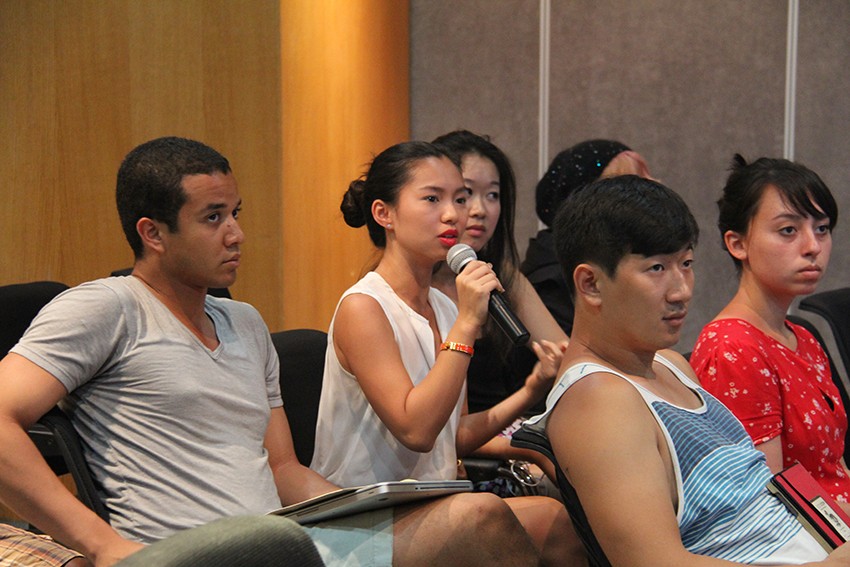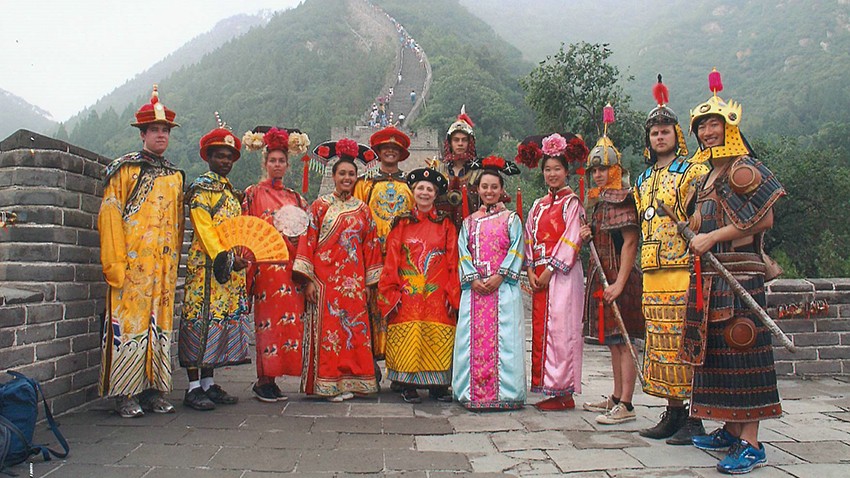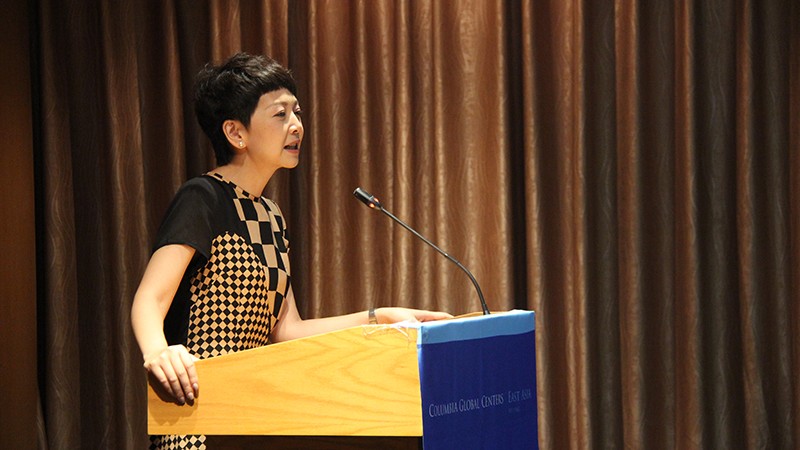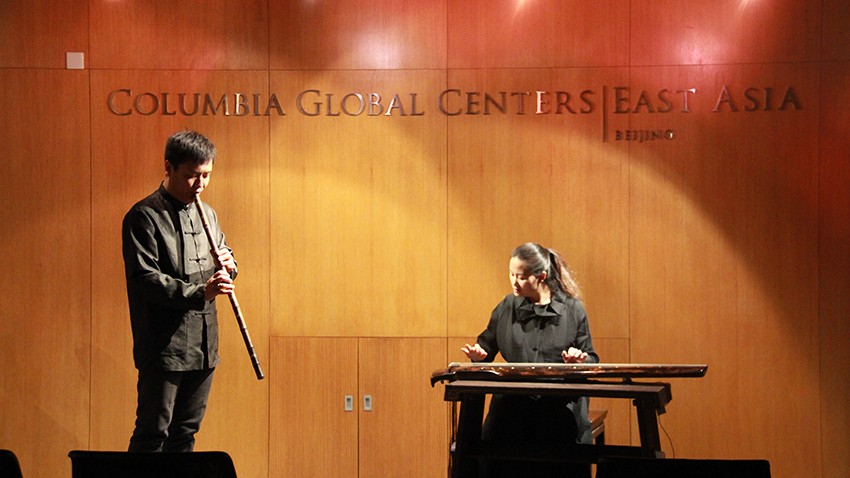From Berlin to Beijing: Global Scholars Arrive in Beijing

The journey began with a boat tour in Berlin, then six days and nights on train #44 of the Trans-Siberian Railroad from Moscow to Ulaan Baatar, and three days of exploring Mongolia. Finally, on July 3, Columbia students in the Global Scholars Program arrived in Beijing, China, the final destination of a four-week summer research workshop.
The program is a summer research workshop run by Columbia faculty and designed to introduce undergraduates to field work methods overseas using both sociological and anthropological approaches. This year's workshop is titled "Contemporary Cities of Eurasia: Berlin, Moscow, Ulan Bator, Beijing." Students are exploring the histories, cultures, built environments and lived spaces of the former Soviet Union, Eastern Europe, Mongolia and China through lectures, site visits, and directed coursework in major cities of the Eastern Bloc countries. Students traveled from Berlin to Beijing, including a trip on the Trans-Siberian Railroad from Moscow to Beijing, under the guidance of Columbia faculty members Charles Armstrong and Catharine Nepomnyashchy. Students investigated how the common problems of urban life in the twentieth century were addressed in the USSR and societies influenced by the Soviet model, and how the collapse of state socialism in the Soviet bloc and its transformation in China have shaped the development of cities in both places in the twenty-first century.
“It’s a kind of experience that every Columbia student should have in one way or another,” Armstrong said. “This is something very important for the American students to learn, not everyone in the world speaks English, not everyone in the world can get internet access at any time they want, not everyone thinks American… American students really need to appreciate that with an open mind and curiosity to learn from the places they are visiting. ”
The Beijing portion of the program took place from July 3 to July 13 and was devised through collaboration with the Harriman Institute, the Weatherhead East Asian Institute, the Office of Global Programs, and Columbia Global Centers | East Asia.
Upon arriving in Beijing, the students received lectures on the history of Beijing from Beijing Postcard, “Urban Planning in Beijing: Challenges and Responses” from Peng Yan, East Asia Regional Director of C40 Cities Climate Leadership Group, an overview of the economic and social development of Beijing from Long Xuewen, a researcher at Beijing Municipal Commission of Development and Reform, and a roundtable discussion with Prof. Armstrong and Chinese scholars on Northeast Asian politics at the Chinese Academy of Social Sciences. Along with these lectures by scholars, journalists from CCTV, the Wall Street Journal, and the Guardian also shared their perspectives, views and experience about the role of media in China.
In conjunction with the lectures, the group also gained extensive field experience with site visits to Tiananmen Square and the Forbidden City, the Mausoleum of Mao Zedong, the Great Wall, the Beijing Olympic Park, the Beijing Film Studio and the 798 Art District, visiting both the city and suburban Beijing.
The Global Center in Beijing is also producing a series of podcasts with student and faculty interviews in collaboration with one of the students in the program, Anton Fredriksson, an Urban Studies major and rising senior in the Dual BA Program between Columbia University and Sciences Po. Please stay tuned to hear the moment when the students crossed the border between Europe and Asia, how the professors conducted class discussions on the cramped compartments aboard the Trans-Siberian, whether the different political systems link or don't link with each other, and what it means to be a truly global scholar in this ever changing world.
Related Links:
Read a blog by student Julian Richardson about his experiences in the program


